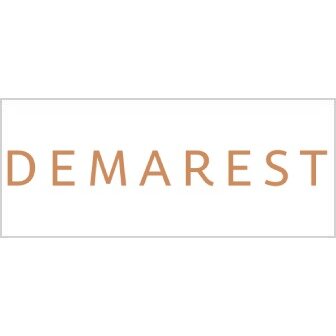Best New Business Formation Lawyers in São Paulo
Share your needs with us, get contacted by law firms.
Free. Takes 2 min.
List of the best lawyers in São Paulo, Brazil
About New Business Formation Law in São Paulo, Brazil:
New Business Formation in São Paulo, Brazil involves the legal process of establishing and registering a new business entity. This can include setting up a corporation, limited liability company (LLC), partnership, or sole proprietorship. The process can be complex, involving various legal requirements, paperwork, and regulations set forth by local authorities.
Why You May Need a Lawyer:
There are several situations where you may need to consult with a lawyer for New Business Formation in São Paulo. These can include drafting and reviewing legal documents, understanding business tax laws, protecting intellectual property, resolving disputes, and ensuring compliance with local regulations. A lawyer can provide valuable guidance and ensure that your new business is set up properly.
Local Laws Overview:
In São Paulo, Brazil, new businesses must comply with various local laws and regulations. This can include registering with the appropriate government agencies, obtaining necessary licenses and permits, complying with tax laws, drafting business contracts, and protecting intellectual property rights. It is essential to understand and adhere to these laws to avoid legal issues and ensure the success of your new business.
Frequently Asked Questions:
1. What is the process for registering a new business in São Paulo, Brazil?
The process for registering a new business in São Paulo involves obtaining a CNPJ (National Register of Legal Entities) number, registering with the appropriate business registry, obtaining necessary licenses and permits, and complying with tax laws.
2. What type of business entity should I choose for my new business in São Paulo?
The type of business entity you choose will depend on various factors, including the size of your business, the number of owners, liability concerns, and tax implications. Common options in São Paulo include a corporation, LLC, partnership, or sole proprietorship.
3. Do I need a lawyer to start a new business in São Paulo?
While it is not required to hire a lawyer to start a new business in São Paulo, it is highly recommended. A lawyer can help ensure that your business is set up correctly, protect your interests, and navigate the legal requirements involved in New Business Formation.
4. What are the tax implications for new businesses in São Paulo?
New businesses in São Paulo are subject to various tax laws, including income tax, value-added tax (VAT), and social security contributions. It is essential to understand these tax implications and comply with the requirements to avoid legal issues.
5. How can a lawyer help me protect my intellectual property rights in São Paulo?
A lawyer can help you protect your intellectual property rights in São Paulo by registering trademarks, copyrights, and patents, drafting confidentiality agreements, and enforcing your rights against infringers. This is crucial for safeguarding your business assets and reputation.
6. What are the key regulations that new businesses in São Paulo need to comply with?
New businesses in São Paulo need to comply with various regulations, including labor laws, environmental regulations, consumer protection laws, data protection laws, and anti-corruption laws. It is important to understand and adhere to these regulations to avoid legal issues.
7. How can a lawyer help me resolve disputes with business partners or third parties?
A lawyer can help you resolve disputes with business partners or third parties through negotiation, mediation, or litigation. A lawyer can provide legal advice, represent you in negotiations or court proceedings, and help you reach a favorable resolution to the dispute.
8. What are the common legal pitfalls to avoid when starting a new business in São Paulo?
Common legal pitfalls to avoid when starting a new business in São Paulo include failing to comply with tax laws, neglecting to protect intellectual property, entering into contracts without legal review, and ignoring labor or environmental regulations. Consulting with a lawyer can help you avoid these pitfalls and protect your business.
9. How long does it typically take to start a new business in São Paulo?
The time it takes to start a new business in São Paulo can vary depending on the type of business entity you choose, the complexity of the registration process, and any legal requirements that need to be fulfilled. It is recommended to consult with a lawyer to understand the timeline for your specific situation.
10. How can I ensure that my new business is in compliance with all legal requirements in São Paulo?
To ensure that your new business is in compliance with all legal requirements in São Paulo, it is recommended to consult with a lawyer who is familiar with local laws and regulations. A lawyer can help you understand and fulfill the legal requirements for New Business Formation, protecting your business from legal issues.
Additional Resources:
For additional resources related to New Business Formation in São Paulo, Brazil, consider reaching out to the São Paulo Chamber of Commerce, the Ministry of Economy, the Brazilian Bar Association, and local legal firms specializing in business law.
Next Steps:
If you require legal assistance for New Business Formation in São Paulo, Brazil, it is recommended to consult with a qualified lawyer who is familiar with local laws and regulations. A lawyer can provide valuable guidance and ensure that your new business is set up properly and in compliance with all legal requirements.
Lawzana helps you find the best lawyers and law firms in São Paulo through a curated and pre-screened list of qualified legal professionals. Our platform offers rankings and detailed profiles of attorneys and law firms, allowing you to compare based on practice areas, including New Business Formation, experience, and client feedback.
Each profile includes a description of the firm's areas of practice, client reviews, team members and partners, year of establishment, spoken languages, office locations, contact information, social media presence, and any published articles or resources. Most firms on our platform speak English and are experienced in both local and international legal matters.
Get a quote from top-rated law firms in São Paulo, Brazil — quickly, securely, and without unnecessary hassle.
Disclaimer:
The information provided on this page is for general informational purposes only and does not constitute legal advice. While we strive to ensure the accuracy and relevance of the content, legal information may change over time, and interpretations of the law can vary. You should always consult with a qualified legal professional for advice specific to your situation.
We disclaim all liability for actions taken or not taken based on the content of this page. If you believe any information is incorrect or outdated, please contact us, and we will review and update it where appropriate.

















